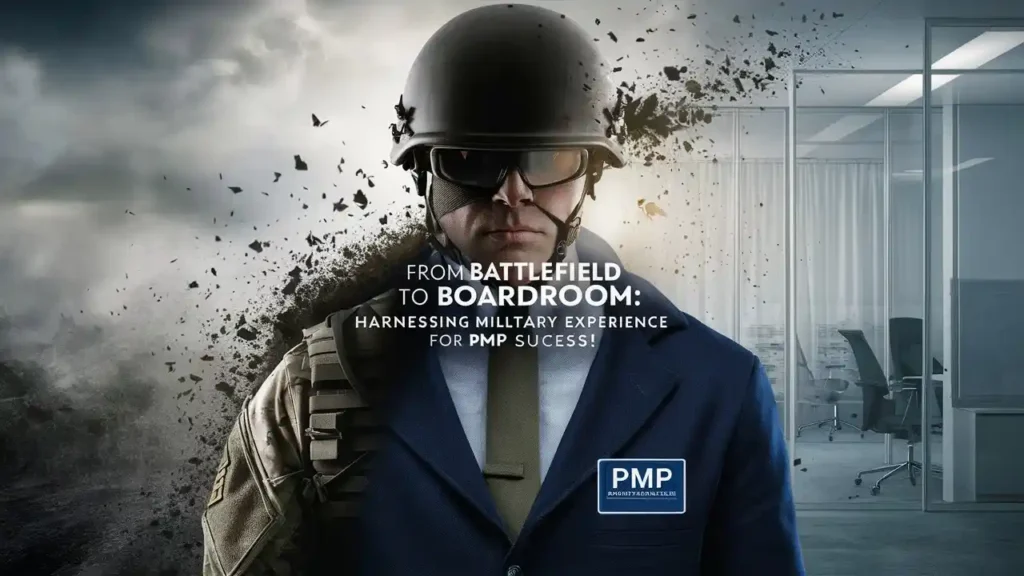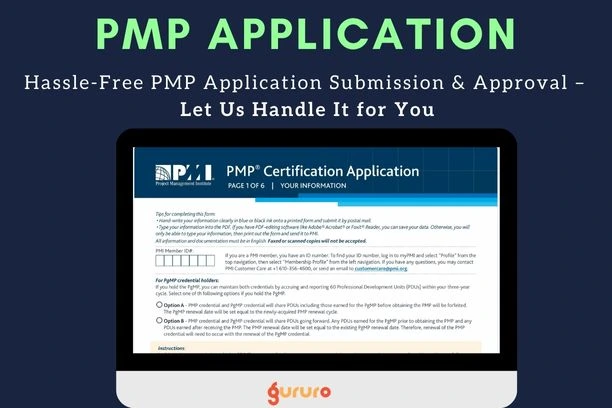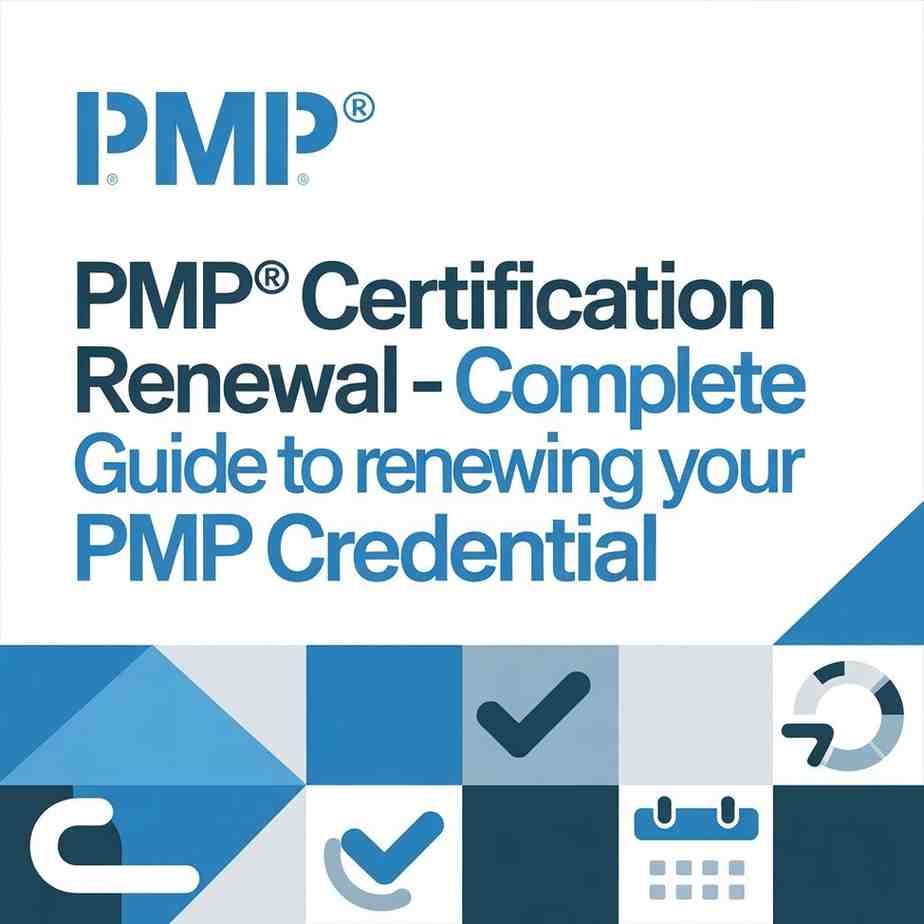Introduction
Transitioning from a military career to the civilian workforce can be challenging, especially when it comes to translating years of specialized service into qualifications that are recognized in the civilian job market. One such qualification that many military veterans might not realize they already possess is the Project Management Professional (PMP) certification. The PMP certification, awarded by the Project Management Institute (PMI), is a globally recognized credential that demonstrates a project manager’s ability to lead and direct projects.
If you’ve served in the military, there’s a high probability that you’ve already led and directed various projects, making you well-positioned to use your military experience to qualify for the PMP exam. In this blog, we’ll explore How to use military experience to qualify for the PMP exam, how to document your experience, and how to navigate the PMP application process.
Understanding the PMP Certification: What Is It and Why Should You Pursue It?
Before diving into how military experience can help you qualify for the PMP exam, let’s first understand what the PMP certification entails and why it’s worth pursuing.
The Project Management Professional (PMP) certification is a globally recognized credential awarded by PMI to project managers who demonstrate knowledge and experience in managing projects. The PMP certification validates your ability to handle various aspects of project management, from initiation through to closing, and is considered a gold standard in the field of project management.
By earning your PMP, you’ll open doors to higher-paying roles, more job opportunities, and a career that values your leadership and management capabilities. For military veterans, the PMP certification is a powerful tool to transition into civilian roles, especially in industries that prioritize project management skills, such as construction, IT, healthcare, and government contracting.
How Military Experience Aligns with the PMP Certification Requirements
One of the key challenges when transitioning from the military to civilian careers is figuring out how your military service can translate into civilian qualifications. Fortunately, many of the experiences you gained in the military align closely with the PMP exam requirements. The Project Management Institute (PMI) values leadership, decision-making, and the management of complex tasks—skills that military veterans already possess.
Here’s how you can align your military experience with the PMP requirements:
1. Understanding the PMP Eligibility Criteria
To qualify for the PMP exam, you need to meet certain educational and experience requirements. These include:
Education: You must have either a secondary degree (high school diploma, associate degree, or global equivalent) or a four-year degree (bachelor’s degree or global equivalent).
Project Management Education: You need 35 hours of project management education. Many veterans can meet this requirement by leveraging their training or by taking a PMP Boot Camp.
Project Management Experience: Depending on your educational background, you must demonstrate 3 to 5 years of project management experience. This includes leading and directing project tasks, which aligns closely with military responsibilities.
2. How Military Missions Count as Project Management
In the military, you’re tasked with completing missions—essentially, projects with clear goals, timelines, and outcomes. The PMBOK (Project Management Body of Knowledge), which defines project management standards, categorizes a project as a temporary endeavor aimed at creating a unique product, service, or result.
Military missions share these characteristics, making many of them eligible to count as project management experience. Whether you led a deployment preparation, coordinated logistics, or managed the implementation of a new system or technology, you have experience that can be documented as part of your PMP application.
3. The Importance of Leadership Experience in PMP
PMI is particularly interested in your leadership abilities. The military places a strong emphasis on leadership and decision-making, so if you’ve held any leadership role—whether as a team leader, squad leader, platoon leader, or project manager in the military—you’ve already been involved in leading and directing project work.
Your ability to coordinate teams, manage resources, and meet deadlines on military missions directly correlates with the PMP requirements for leading and directing projects.
5 Key Steps to Use Military Experience to Qualify for the PMP Exam
Here are the 5 key steps military veterans can follow to leverage their military experience and qualify for the PMP exam:
1. Identify Relevant Projects
In the military, you likely led and managed multiple projects that align with PMI’s project management standards. To meet the PMP experience requirements, identify your military projects that were temporary endeavors with specific outcomes and definite timelines.
Some examples of military projects include:
Deployment preparation
Logistics and supply chain management
Implementation of new weapon systems
Establishing operational bases or facilities
Conducting major training exercises
The key here is to ensure that your military missions meet the PMI definition of a project, which means they were temporary, unique, and had clear outcomes or deliverables.
2. Document Your Leadership Experience
PMI places heavy emphasis on leadership in the PMP exam requirements. Documenting your leadership experience is crucial. Did you lead a team, coordinate resources, or manage the execution of tasks during your military missions? If yes, this counts as leading and directing project work and should be included in your PMP application.
For each project you identify, consider the following leadership roles:
Were you the primary leader responsible for the mission’s success?
Did you manage a team or multiple teams?
Did you handle conflict management, stakeholder communication, and decision-making?
3. Quantify Your Project Management Experience
In addition to leadership, PMI requires quantifiable project management experience. This means documenting how many hours and months you spent managing each project. For example, if you led a project for 6 months, calculate how many total hours you worked on that project (assuming 8-hour workdays).
Here’s a breakdown of how to document your experience:
Start Date: When did you begin leading the project?
End Date: When did you finish your involvement in the project?
Overlapping Projects: If you worked on multiple projects simultaneously, document the total number of hours worked, but ensure you don’t double-count any overlapping months.
4. Write a Strong Project Narrative
The PMP application requires a narrative description for each project you list. While this may seem daunting, the key is to highlight the project’s objectives, the work you did, and the outcomes achieved. A well-written project description will demonstrate your ability to apply project management principles, and make it easier for PMI to approve your application.
5. Fill Out the PMP Application and Submit
Once you’ve gathered all your project data, fill out the PMP application on the PMI website. The application will ask for the number of months and hours you worked on each project, along with your narrative descriptions. After completing the application, PMI will review it, and if they approve it, you’ll be eligible to take the PMP exam.
Common Challenges Military Veterans Face When Applying for the PMP Exam
While many veterans can qualify for the PMP exam, there are some common challenges you may encounter along the way:
Difficulty in Identifying Relevant Projects: Some veterans may struggle to identify military projects that align with PMI’s requirements. This is where working with a mentor or project management expert can be helpful.
Confusion about Experience Documentation: Documenting experience in months and hours can be tricky, especially if your military work wasn’t tracked as civilian project management would be. However, reasonable estimation is acceptable as long as you can justify your claims.
Audit Risk: PMI audits around 20-25% of PMP applications. While audits are random, it’s important to ensure that your documentation is accurate and can be backed up with evidence, such as project records or affidavits.
Conclusion: Your Military Experience Is More Valuable Than You Think
Military veterans have a wealth of project management experience that is often undervalued when transitioning to civilian careers. By following the steps outlined above, you can leverage your military background to qualify for the PMP exam and pursue a lucrative career in project management.
Remember, the PMP certification is about leadership, decision-making, and project completion—skills you’ve already honed through years of military service. So, whether you’re preparing for a deployment or managing logistical operations, you’ve been applying the same principles that PMI values in a project manager.
Embrace your military experience, document your achievements, and take the next step towards earning your PMP certification. The civilian world is ready for your leadership, and the PMP certification is the key to unlocking your potential.
Get started today by using our PMP Application Service to simplify your application process – Apply Now!














